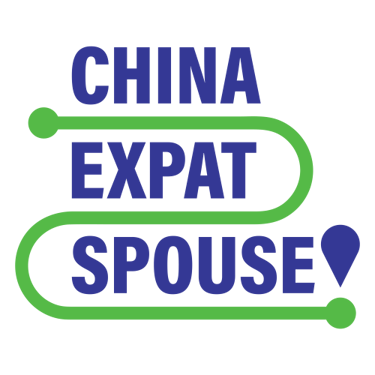HR Challenges for Global Companies in China


China is the world’s second-largest economy, making it a critical market for any multinational company. With its rapid industrialization and urbanization, the country is still a hub for foreign investment, in spite of recent geopolitical developments. Navigating HR challenges in this culturally different and rapidly changing market is key to a successful market integration. This article gives an overview of the HR challenges global companies face in China - from talent acquisition, employee retention and managing workforce expectations through to complying with local labor laws all the way to dealing with technological advancements and geopolitical tensions.


Talent Acquisition Challenges
Like any country, China is prone to certain challenges when it comes to hiring the best talent for your business. Let’s have a look at what those are specifically for the Middle Kingdom
Shortage of Qualified Talent
China’s huge labor pool may make you think acquiring talent in the market is easy. Unfortunately, there is a large mismatch between the skills employers need and the qualifications of available candidates. Especially industries like IT, engineering, and finance face acute shortages of highly skilled professionals.
The education system focuses on standardized tests throughout a Chinese student’s school career, and many universities focus on theoretical knowledge. This means graduates are often underprepared for roles in multinational companies, where project work and complex work structures mean employees must be able to problem-solve quickly and efficiently and deal with uncertainties and ever-changing job requirements.
Competition for Top Talent
Multinational companies are no longer an automatic first choice for Chinese job seekers. Global companies must compete with Chinese firms that are increasingly offering competitive salaries and benefits. If those hygiene factors are the same, many candidates would rather work in a completely Chinese environment, as it keeps them from having to deal with the added difficulties of a different work culture, having to speak English, and adapt to a foreign management structure.
In times past, Chinese job seekers would immediately jump ship when another company offered a higher salary. This has changed in recent months, since the economic stagnation/downturn makes many employees value a stable long-term work environment over rapid career progression. This means that multinational employers should emphasize the benefits they can offer, and mention the long-term development opportunities.
Another aspect of this competition for top talent is regional differences. Talent in China gravitates towards megacities like Shanghai, Beijing, Shenzhen, and others. If your company is not situated in one of those hubs, your available talent pool shrinks further.
Another issue is that multinational companies naturally prefer employees who are at least bilingual and have previous international experience. Those highly skilled workers are in high demand, adding pressure to your talent acquisition.
Cultural Differences in Recruitment
It is imperative that employers in China understand the significance of “guanxi” and tailor recruitment practices to local customs. Guanxi are a person’s social network of mutually beneficial personal and business relationships, and they are omnipresent in Chinese society. It is not just about knowing someone but establishing mutual trust, reciprocal obligations, and long-term relationships. In recruitment, MNCs can integrate the guanxi practice by
Collaborating with Local Partners: The hiring company can establish partnerships with local recruiters, headhunters, or employment agencies who already have extensive networks in the Chinese labor market.
Engaging with Industry Networks: HR should attend industry events, job fairs, and government-organized forums to connect with key players and influencers in relevant sectors.
Leveraging Alumni Networks: MNCs can tap into alumni networks of prestigious Chinese universities and institutions, as they are often tightly knit and hold influence in recruitment.
Another aspect of cultural differences in recruitment is to adjust recruitment processes to resonate with local expectations. This may mean rewriting job ads “the Chinese way” before posting them. Or it could mean training foreign HR employees in what a job interview likely looks like in China - or working together with a local HR professional for all Chinese hiring decisions.
Employee Retention Issues
In addition to talent acquisition issues, HR professionals for MNCs in China also need to grapple with employee retention issues such as turnover rates higher than what they are used to, wage inflation that make staying a competitive employer hard, and also shifting employee expectations.
High Turnover Rates
As in many other countries, the younger generation of Chinese employees are more likely to change jobs frequently. This aspect is somewhat mitigated by the recent economic downturn (as stability is seen as more important than fulfilling their dreams), but the churn of their Chinese workforce may still surprise HR professionals when comparing numbers to their headquarters or other geographic locations.
High turnover is also more prevalent in certain sectors than others. IT, finance, retail, and manufacturing are the industries in China most affected by high turnover rates. In manufacturing, for instance, factory staff turnover can reach up to 80% annually. Peak time for staff turnover is before Chinese New Year, as factory floor workers simply leave to go home and celebrate with their families. In the finance sector, professionals are increasingly leaving the industry due to government crackdowns and the economic downturn.
What this means for the hiring company, is of course that recruitment costs will skyrocket. If you are used to 3-5 years on the job by your average employee and this duration shrinks to 0.5-2 years, your recruitment costs will rise accordingly. Frequent job changes also disrupt continuity in work processes, with handovers, inductions, and rebuilding of networks every time a point of contact changes.
Wage Inflation
Over 20 years of unprecedented economic growth in China means that for years, salary expectations increased rapidly across all sectors of the economy. Recent economic trends notwithstanding, many employees still expect regular salary increases and may be tempted to jump ship if another employer offers them more.
For MNCs, this means they must manage wage inflation while balancing both profitability and competitiveness. In plain language: give your employees what you must so they don’t run away to the competition, but keep an eye on your overall costs at the same time.
Shifting Employee Expectations
More and more employees in China (as in many other countries worldwide) value their work-life balance. They also have a good understanding of why long-term career development opportunities are essential. And they may value a healthy company culture over traditional benefits. Many employees in China born after the 2000s - the generations in China get their names from their birth years, i.e. 80后 (after 80), 90后, 00后 - are unwilling to participate in the rat-race and prefer “lying flat” (躺平, pronounced tǎngpíng, a neologism for those refusing to conform to the societal pressure to overwork or overachieve) instead. This could give MNCs a slight advantage in employer branding, as foreign companies are seen as less demanding than Chinese brands.
Strategies to help with these shifting employee expectations are for MNCs to invest in training programs, mentorship, and employee engagement initiatives.
Compliance with Labor Laws
Of course, the regulatory environment of the Chinese HR landscape is also an important factor when looking at HR challenges for MNCs in China. Not only is it complex, but its enforcement also varies.
Complex Regulatory Environment
The stringent and frequently evolving labor laws are difficult to navigate for foreign HR professionals. China has mandatory social security contributions, layoff restrictions, and numerous other regulations all companies in the PRC must adhere to.
It is imperative that MNCs carefully monitor local and national regulations to remain compliant at all times.
Enforcement Variability
While there is one overarching labor law that is relevant for the entire country, its enforcement differs between provinces, cities, and sometimes even districts within the same municipality. This creates inconsistent challenges for multinational enterprises. And it may mean checking preferential labor policies before starting operations in China. Unanticipated inspections can disrupt operations.
The sharp crackdown on corruption in recent years means that most surprise penalties are probably legitimate, but it is worth investigating when being levied with a fine. And reporting the government officials asking for the “penalty” if one suspects it may be a handout or kickback in disguise.
Recent Legislative Changes
Laws and regulations in China are in a constant flux. Recently, regulations about remote work, data privacy, and labor disputes have received an overhaul and require especially close monitoring.
Staying compliant requires hiring local legal experts or international HR consultants.
Managing Workforce Expectations
When managing a Chinese workforce, there are certain expectations HR professionals need to be aware of, such as generational differences, hopes for work-life balance, and career development opportunities.
Generational Differences
Employees from different generations will seek different things:
Older employees (i.e. those born before the 1970s or 1980s) will prioritize job security, stability, and long-term financial benefits. For them, MNCs should emphasize available retirement benefits, healthcare offers, and job security in the hiring process. Another asset will be demonstrating the company’s stability and standing in the market, thereby building trust with the applicant.
Younger generations (born after 1990 or in the 2000s) will tend to focus more on their career growth, work-life balance, and possibilities to take on innovative tasks. Their employment packages should emphasize where their work will be meaningful, possibilities for flexible working arrangements, and the types of leadership training and mentorship opportunities the company can offer.
Work-Life Balance
For many Chinese employees, work-life balance has become a priority. This trend has started during the pandemic, where many got to experience more flexible and supportive work environments. White-collar employees are loath to give up the freedom they enjoyed in this period. Increasing awareness of the importance of mental health and wellness are other drivers for this tendency. Practically, this means that MNCs should introduce flexible work hours with either the option of staggered work hours or compressed work weeks so employees have greater control over their schedules. Opportunities for remote work (where possible, i.e. for office workers) are a good idea, especially if the company is located in an urban area where commutes for employees are long. Wellness programs like mental health support, coaching or access to fitness or recreational activities can further promote employees’ overall well-being.
Career Development Opportunities
The rapid advancements in technology and the ever-evolving Chinese market make skill enhancement and ongoing training paramount for Chinese employees. On the practical side, here are some strategies MNCs can follow:
Upskilling and reskilling: Comprehensive training programs to enlarge and change their skills help employees adapt to new technologies and to changes in their roles. Especially industries experiencing automation and digitalization will benefit from this.
Clear career paths: By creating transparent promotion criteria and career roadmaps, MNCs outline long-term growth opportunities within the organization, keeping employees committed to the company.
Global exposure: MNCs can offer something many Chinese companies cannot - international assignments, cross-border projects, and the opportunity to exchange knowledge with colleagues from different countries. Ambitious employees will appreciate the opportunity to gain global experience.
Mentorship programs: When pairing junior employees with experienced mentors, you foster knowledge sharing and skill development. Bonus points for cross-cultural pairings!
Technological Advancements & Automation
The only constant in life is change - especially in China. Technological advancements such as AI and robotics pose challenges in most industries, and meeting those challenges head-on is a major task of HR professionals, not only at MNCs.
Increasing Adoption of Automation
The manufacturing sector in China is the world’s largest market for industrial robots, with automation transforming industries from automotives and electronics all the way to consumer goods manufacturing. The robots improve efficiency, but mean displacing blue-collar workers who used to do menial work on the factory floor. Or upskilling them into other jobs. MNCs would do well to invest in robotics and smart manufacturing technologies to stay competitive. And they should focus on reskilling or upskilling programs to transition blue collar workers into new roles.
In the service industry, AI-driven chatbots, virtual assistants, and data analytics are used more and more - in customer service, retail, and also finance. These technologies can vastly improve customer experiences, but they also reduce the demand for certain entry-level jobs. For MNCs, this means integrating AI tools to improve their customer interactions and service delivery. And it means developing roles that focus on managing, maintaining, and enhancing AI tools.
Workforce Implications
The widening skill gap of a large portion of the workforce is a challenge for MNCs and Chinese companies alike. Many employees do not possess the technical skills they need to work with advanced automation tools or to use AI-analyzed data effectively. Tips for global companies in China are to partner with educational institutions to develop tailored training programs and to offer in-house training focused on technical proficiency and digital literacy.
Automation often leads to job displacement of low-skill roles and creates a demand for highly specialized positions. HR professionals should work on creating pathways for workers to transition into emerging roles such as data analysts, AI trainers, or system operators. Companies should also encourage cross-training to help employees adapt to their new roles within the organization.
Leveraging Data and Analytics
Big data and machine learning can be used to predict market trends, customer behavior, and operational needs of companies in the market. Therefore, MNCs should invest in data analytics platforms to use predictive analytics for actionable insights. And they should train their employees to interpret and act on data-driven insights effectively.
Another area where data and analytics can be leveraged is HR itself. Tracking employee performance, engagement, and satisfaction are all example use cases for this technology. HR can implement analytics tools to monitor workforce trends and identify areas for improvement. The data can then be used to tailor employee retention strategies and enhance workplace satisfaction.
Digital Transformation in HR Processes
From recruitment automation to employee engagement tools, digitization in HR processes are the future. In recruitment, AI-powered tools can streamline the process by screening resumes, assessing candidates, or scheduling interviews. Platforms like applicant tracking systems (sometimes called ATS) improve your company’s hiring efficiency. But automation should never be the be all, end all. Personalized interactions will always be necessary in recruitment to maintain a human touch.
Once the hiring process is completed, employee engagement tools are another way to leverage AI and digitization in the company. Virtual meeting platforms, gamified engagement apps, and collaborative software are becoming part and parcel of day to day work. By leveraging these tools, you can improve internal communication and foster team collaboration. Gamified engagement solutions can keep the colleagues motivated and productive.
AI in Decision-Making
Strategic applications of AI in decision-making are nother use-case for AI in the company. AI can help optimize supply chains, reduce operational costs, and support decision-making by providing simulations and predictive modeling. In all of these, there are some questions to consider, though. Relying on AI too much can lead to grave mistakes. Deep learning language models are only as good as the data used to train them. Their output is often biased, and their training leads to data privacy concerns. Therefore, MNCs in China should establish clear guidelines for using AI ethically, and train employees to understand how AI systems work so they can monitor the results for biases, and ensure fairness and transparency overall.
China-specific Challenges of Technology Adoption
China’s Personal Information Protection Law and others regulate data privacy in the country. Ensuring compliance with these local regulations when deploying technology is of paramount importance for MNCs. Companies are advised to work closely with legal and compliance teams understanding local requirements who can help navigate the regulatory frameworks. Another challenge can be cross-border data transfer between China and the company headquarters abroad. Some separate solutions may need to be developed to account for China-specific conditions.
Some technologies developed abroad may also require customization to suit China’s unique market needs. Products and services relying on software or websites banned in China, for instance, will require official VPN solutions (to be applied for with the local authorities). To help overcome these challenges, partner with local tech firms to adapt solutions for the Chinese market. Also conduct market research to ensure the technological relevance and acceptance of the products and services you mean to “import”.
Geopolitical Tensions and Their Impact
Business is never immune to what is happening on the global arena of politics. In recent years, geopolitical tensions between China and other global powers (notably the U.S.) have intensified. These shifts significantly affect MNCs operating in China. These tensions can take on various forms, such as trade disputes, regulatory changes, and shifts in global supply chains.
Escalation of Trade Disputes
In 2024, the substantial increase in tariffs on Chinese imports have meant disrupted supply chains and increased operational costs for companies reliant on Chinese manufacturing. Tariffs on steel and aluminum imports were raised to 25%, solar cells faced a 50% tariff. Electric vehicles (EVs) were even subjected to a 100% tariff. 2025 is thought to see semiconductor tariffs rise from 25 to 50%, and more increases are planned for 2026, affecting lithium-ion batteries (excepting those meant for EVs) and critical minerals like natural graphite and permanent magnets. Tariffs for those goods and raw materials are set to rise to 25%. Tariffs on medical products like syringes and needles are set to increase to 50%, and rubber medical gloves are predicted to rise to 25%, also by 2026. All of these tariffs affect not only Chinese companies, but also MNCs operating in China, as well as consumers and companies in the United States themselves trying to buy those goods and raw materials.
For MNCs within China, this development means they need to reassess their sales strategies to the U.S. Retaliatory measures by the Chinese government, such as restrictions on rare earth exports or targeted tariffs, can create uncertainty for MNCs sourcing materials locally. Companies will need to develop contingency plans by diversifying supplier bases within China and by collaborating with local partners to minimize disruption to their business.
Regulatory Challenges and Market Access
2024 has seen a number of new regulations affecting foreign companies. Chief among them are data security laws and market access restrictions.
In November of 2024, the “Global Cross-Border Data Flow Cooperation Initiative” was introduced, aiming to stimulate cross-border data flows and support global digital free trade. While the initiative will facilitate data movement, it also imposes compliance requirements on all companies active in the Chinese market. Adhering to it will mean adjustments to data management practices for many MNCs.
Policies and economic headwinds represent rising challenges for global companies in China. The trend towards self-reliance and support of domestic companies is fostering a more hostile business landscape for MNCs, requiring them to navigate a complex regulatory environment and adapt to changing market dynamics.
Supply Chain Reconfigurations
Because of these geopolitical tensions, global companies increasingly reconfigure their supply chains. This can mean that they relocate operations away from China to other countries (so-called “China-plus-one”). This strategy has companies relocating Chinese staff to regions such as Europe, Southeast Asia, or Latin America to diversify production away from China. To support this and further diversify, some companies are also establishing “China desks” with staff fluent in Mandarin in new locations to aid Chinese clients abroad.
Conclusion
In summary, the main HR challenges MNCs face in China are: mastering talent acquisition and employee retention, complete compliance with labor laws, managing workforce expectations, and coping with technological advancements as well as geopolitical impacts. All of these challenges are interconnected, and they will influence every aspect of HR management in China. In order to succeed in the Chinese market, it is vitally important to understand and respect cultural nuances such as guanxi, the generational differences present within your workforce, as well as how to cater to work-life balance expectations. Tailoring strategies to align with local customs and practices will also be critical for success.
So, be proactive: invest in training, leverage local expertise, and embrace technological advances responsibly. This will enable you to develop flexible HR strategies that are future-proof and can adapt to the ever-evolving economic and regulatory environment you are faced with.
By building resilient, adaptable systems, you will be able to have long-term, sustainable development. Focus on employee engagement, the ethical use of AI technology, and compliance. This fosters both stability and trust in your brand.
Julie has been there for me in a coaching role throughout my career to date in terms of guidance and helping me navigate challenging times. Her help and support has been pivotal for my personal growth and development and I am very thankful for her time.
Sherryl M., Sri Lanka



Your Company’s Success in China is Guaranteed
when you provide qualified support not only to your expats going to China, but to their spouses as well
Frequently Asked Questions
What are the key qualities to look for in an expat for China Assignments?
Cultural intelligence, adaptability, leadership, and language skills are essential traits.
What challenges do expats face when moving to China?
Expats encounter cultural barriers, language difficulties, and complex legal regulations.
How important is cultural training for expats going to China?
Crucial. Without proper training, expats may struggle with cultural norms, causing misunderstandings.
How can companies support expats during their assignments in China?
Provide housing, relocation assistance, mentorship, and ongoing professional support.
How can I contact you?
You can reach us at julie@chinaexpatspouse.com
+86 152 0400 1727. We are always happy to answer your questions.
What is the best way to measure the success of an expat assignment in China?
Use KPIs like business performance, cultural integration, and relationship-building as key metrics.
My office
Ji’an Road 42-1, No. 2-3
Heping District Shenyang City Liaoning Province CHINA
Germany:
In der Zennwies 2, 66629 Freisen, Germany


Intercultural Experts


